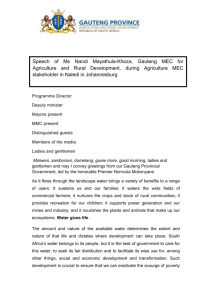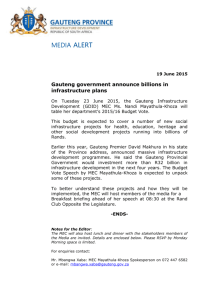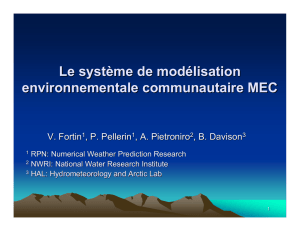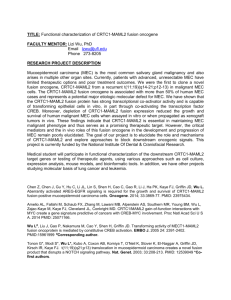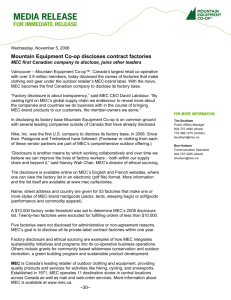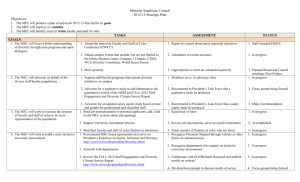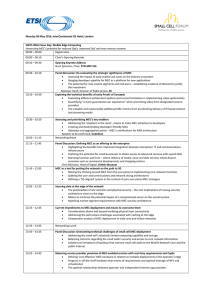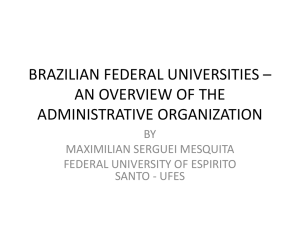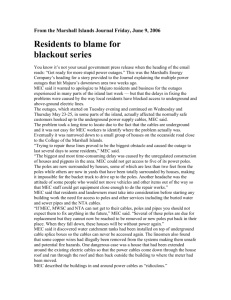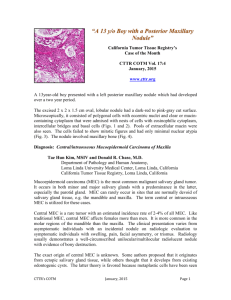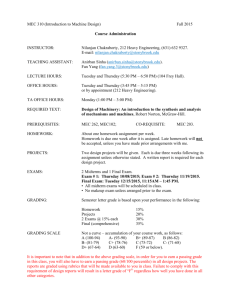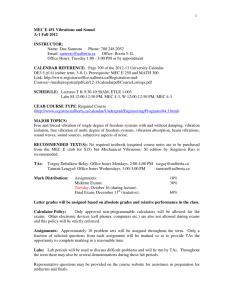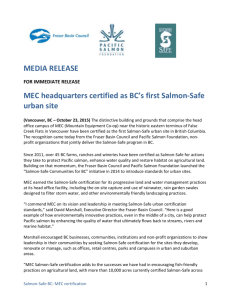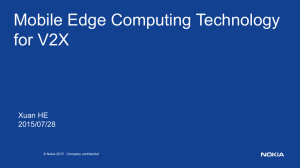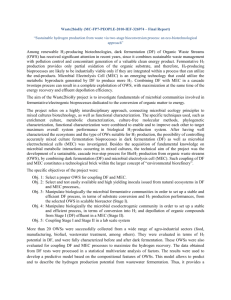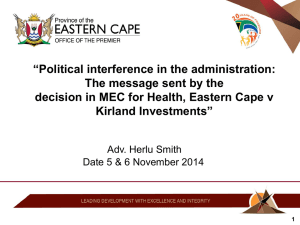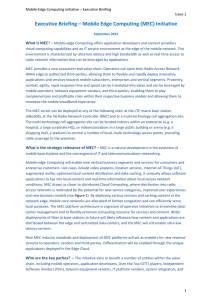Perspective on Distance Learning - Brazil
advertisement
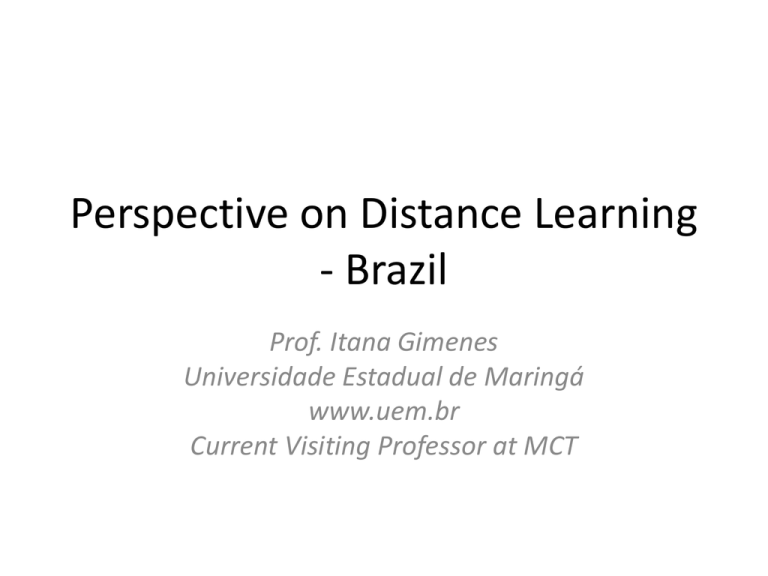
Perspective on Distance Learning - Brazil Prof. Itana Gimenes Universidade Estadual de Maringá www.uem.br Current Visiting Professor at MCT Brazil • Population: 190M (2010) • Education is in Portuguese (all levels) • ~ 12% of the population has access to higher level education (undergraduate courses). Education • MEC – Department of Education and Culture (www.mec.gov.br) • Higher level education is provided by (public or private): – Universities – University centres – Faculties – Federal Institutes • Together they offer ~ 29.000 courses (2009) Evolution of Higher Level Education Institutions from 2000 – 2009 (www.inep.gov.br) Distance Education • MEC/CAPES is a sector that originally supported the qualification of University staff. Currently it: – regulates and approves postgraduate programs – has a division that supports distance education within the UAB system (Open University) • MEC/SEED – special sector of MEC for Distance Education UAB www.uab.capes.gov.br • UAB is the translation of OU, but it is not a physical place or institution. It is an integrated action between MEC/SEED and DED/CAPES (Created in 2005). – It is a system (project) that aggregates the current distance education courses; – Courses are offered by Federal and State universities; – There are regional centres that support the universities – Courses are mainly: undergraduate and “lato sensu” postgraduate (diploma); – There are not research programmes. Evolution of the number of registered students and teaching mode 2001-2009 Distance Education Overview of the Courses (2009) Distance Education Course Registered Total % 838,125 1 Pedagogy 838,125 34.2 2 Management 228,771 27.3 3 Social service 68,055 8.1 4 Literature 49,749 5,9 5 Accounting 29,944 3,6 6 Mathematics 19,626 2,8 7 Biology 19626 2,3 8 History 16,864 2 9 Social Communication 15,802 1,9 10 Environment 13,091 1,6 Others 85,956 10,3 Current UAB data – 92 Institutions involved; – 587 regional centers; – 950 courses; – There are courses in Mozambique. PNPG 2005 – 2010 and 2011 -2020 • National plans for the postgraduate program system – Emphasizes the need to qualify basic education teachers of the public sector; – Currently there is call for course proposals. Initiatives • Recent example - PROFMAT: professional master course on mathematics offered by a pool of Universities (2011) – 20.000 candidates for 1.192 – Grants offered for public school teachers by MEC. Conclusions • Distance education comes from public and private sectors. • Brazilian government – has set public basic education as priority; – It has been increasing investment in research; – It has been expanding the number of courses in public universities (evening courses); – Postgraduate programs are increasing. • Distance education tends to increase in the same proportion.
